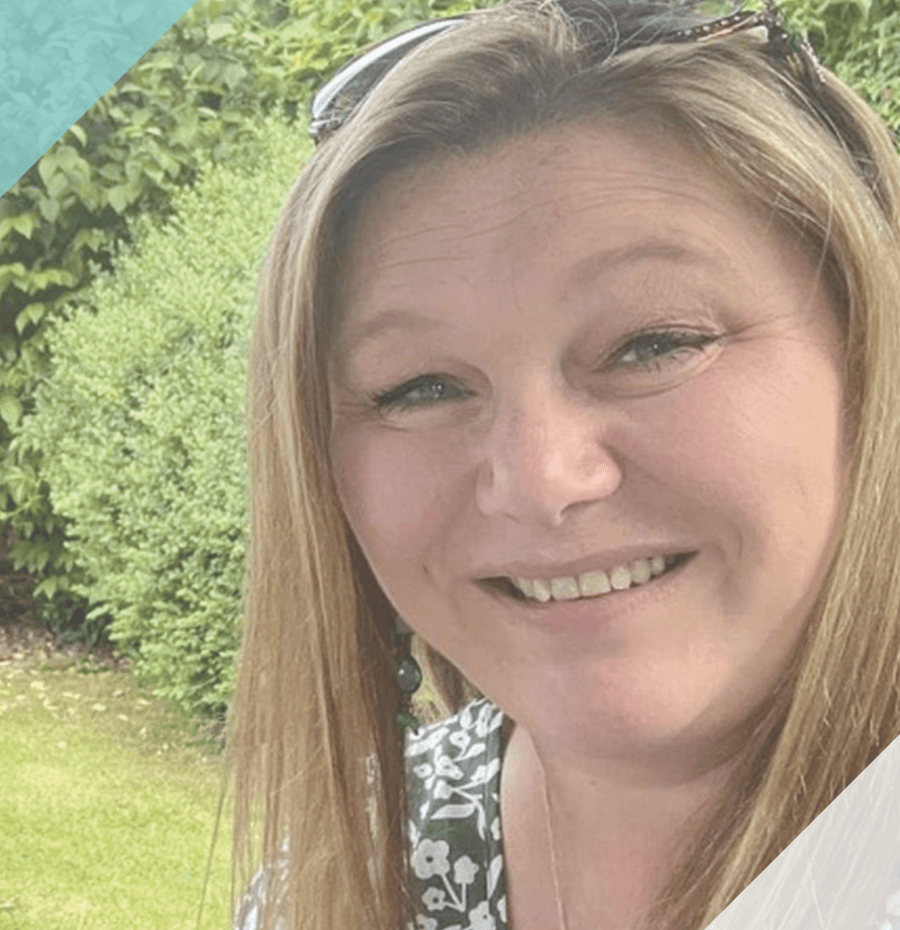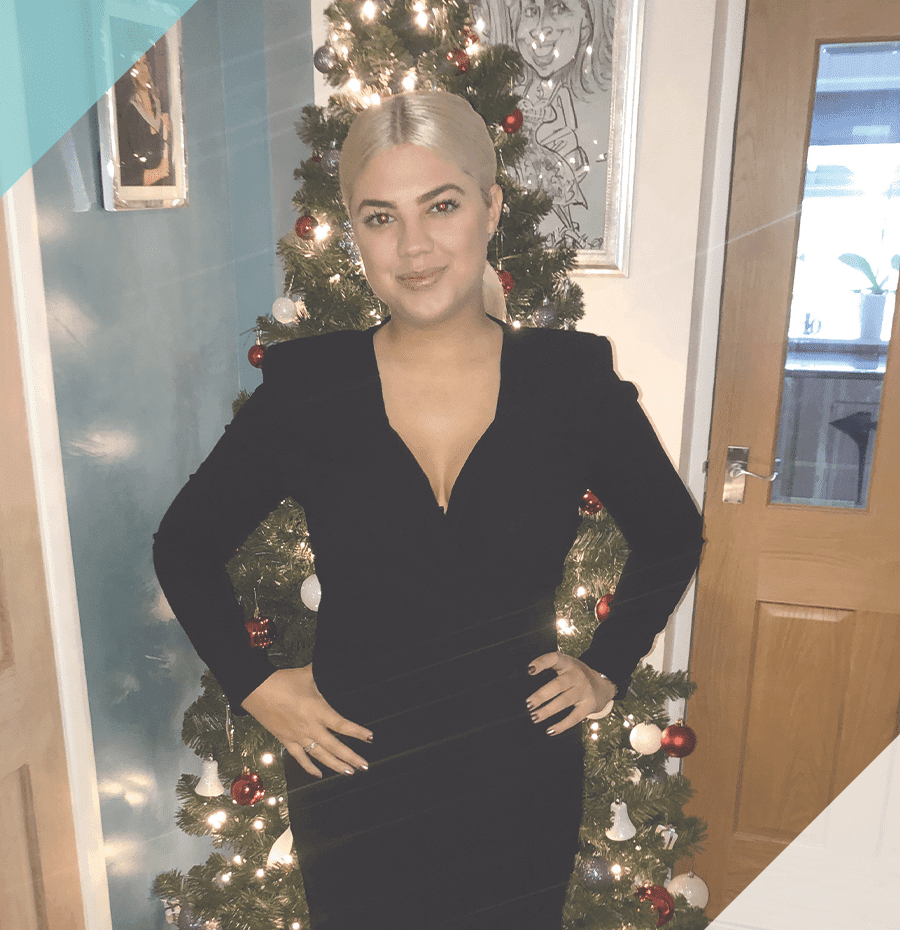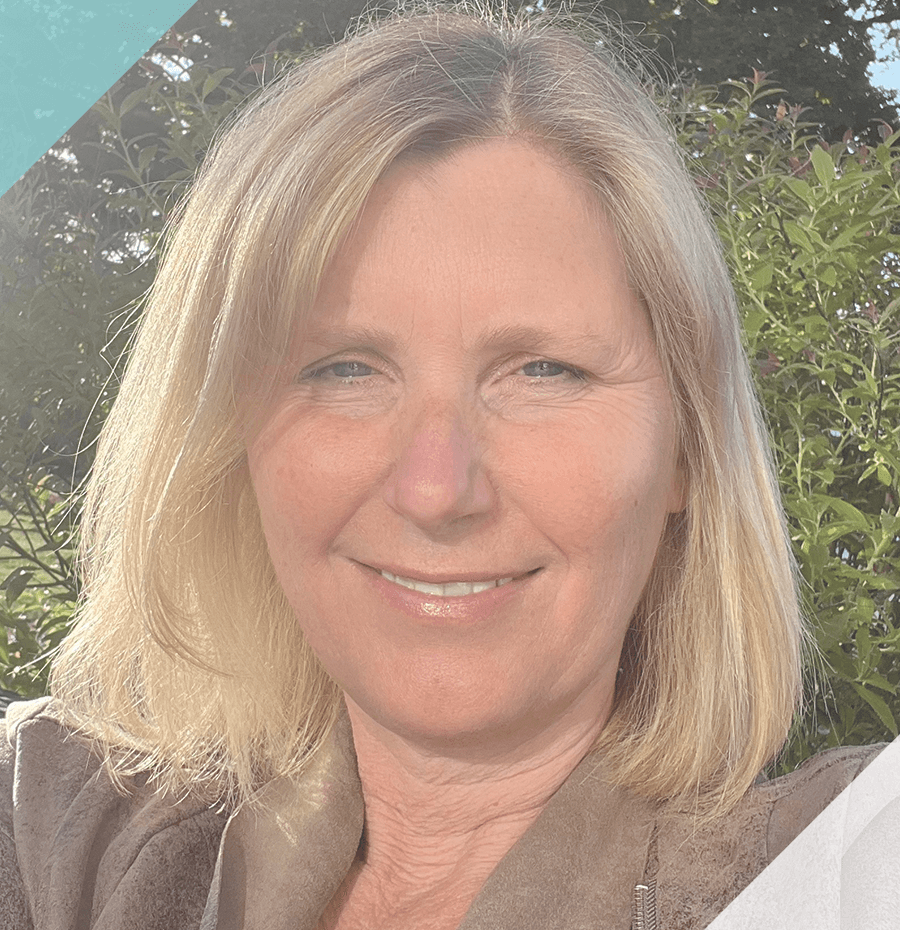Be Offer Ready – Residential Conveyancing for a Fixed Fee
Instruct Attwells before putting in your offer
Offer Ready is an exclusive service from Attwells Solicitors. This new approach to conveyancing allows home buyers to upfront some of the conveyancing work free of charge, however, you must instruct Attwells before you make an offer.
Whilst you browse for a home Attwells will:
Verify your Identity for Attwells and an Estate Agent
Understand and evidence your Deposit for Attwells and an Estate Agent
Prove Funding for the purchase for Attwells and an Estate Agent
Be ready to start the legal work immediately on sale agreed
This will save you on average over 4 weeks.
By having this legal work completed you will have a greater chance of making a successful offer and moving quickly. We will provide your Offer Ready Certificate to your Estate Agent all free of charge. The Offer Ready Certificate will demonstrate to that Estate Agent that you have met all the steps to be Offer Ready.
Many of the traditional solicitors will not entertain this method due to the up-front costs they occur. But Attwells believe it’s important to support first-time buyers. Therefore, we are willing to begin working on your conveyancing straight away at no extra cost.

What costs are involved in buying a home?
Attwells offer conveyancer and property lawyer services
Buying your first home is an extremely exciting time but it can also be a time of uncertainty.
At Attwells Solicitors we guide our first-time buyers through the process. We understand that as a first-time buyer a lot of the legal jargon and the conveyancing process itself will be completely foreign to you. Therefore, we have created a bespoke service designed to meet your needs.
The first thing we would recommend is arranging your conveyancer. Even if you are just browsing it is still a good idea to arrange your conveyancer as they can offer you expert property advice which is not determined by commission or sales targets. We are here to help you as legal professionals.
We will ask you to complete a brief form and pay a small deposit. This will be deducted from your final conveyancing bill which is not due until you exchange contracts.
Buying your first home
How to get your first mortgage
Over the last few years, lenders have had to tighten up their affordability criteria. This was due to the financial crisis in 2008 which was partly due to banks offering unaffordable lending. This has made obtaining a mortgage more challenging than in the past, but there are things you can do.
Credit score
Firstly, we would recommend you check your credit score. According to Credit Karma, a good credit score is between 604 to 627, with an excellent score considered to be between 628 and above. Normally credit scores are out of 700.
Ironically to have a good credit score you need to have had credit. Having a credit card and paying off the balance in full each month can help you achieve this. Likewise keeping household bills up to date, even if it’s just your Now TV pass or mobile phone bill. All of these things will inform a lender that the risk of lending to you is low.
Deposit
Next, you need to start saving, you will require at least a 10% deposit. The best way to do this is to have a range of saving accounts that you put money into monthly via standing order. A standing order can be set up using your online or mobile banking.
By saving in a range of account types such as a basic saver, ISA, and/or stocks and shares account you will not be reliant on the basic interest rate but equally you will not be risking all your money in higher interest stocks and shares account either.
Employment status
Your employment status is equally as important. Lenders would prefer that you have been employed for at least six months. This is because your employer can no longer easily dismiss you. When applying for your mortgage the lender will require at least three months of payslips. If you are self-employed you will need to produce your accounts for the last two to three years.
How much can you borrow?
Based on this information the lender will work out how much you can borrow. They normally do this by timesing your gross income (what you earn before tax) by 4. Some lenders will times your gross income by 4.5 or even 5, but often these mortgages will incur higher interest rates making your monthly repayment higher. If you are buying as a couple you will be able to borrow more as your joint income will be timsed. However, we would strongly recommend you arrange a Declaration of Trust.
In addition, some lenders will also take into consideration benefits you receive or child maintenance. You will need to prove however that this is a guaranteed income, like for example the Personal Independence Payments (PIP) which are considered a lifetime benefit for those who are disabled. You may also be able to consider Child or Family Tax Credits if your children are young. This is helpful for single parents.
Every lender will have their own lending criteria so if you are unsuccessful with one lender don’t give up.
Our Conveyancers
All our conveyancers are fully trained and supported by property solicitors. Our focus is on client care and jargon-free law. This is measured by our Feefo reviews. We use tags to allow us to review the performance of individual conveyancers, ensuring you and your clients the best possible service.
Share Your Experience
The best form of marketing is word of mouth therefore, we encourage our clients to share their experience with Attwells.
We would be delighted if you could share posts on social media relating to other services plus recommending friends and family. Every person you recommend will receive a 10% discount.
After you’ve moved you will have the opportunity to complete a Feefo review. We use this feedback back to improve our service and to reward our conveyancers.
First time buyer FAQ’s
Conveyancing Cost
Attwells Solicitors are conveyancing and property solicitors. We specialise in residential conveyancing offering you fixed fees. Our conveyancing fees reflect the level of service you will receive and the speed at which your transaction will take place. Our quotes include and break down every possible cost.
| Purchase or Sell Price | Fee |
|---|---|
| £20,000 and under | £850 plus VAT at 20% |
| £20,001 to £50,000 | £1,050 plus VAT at 20% |
| £50,001 to £80,000 | £1,250 plus VAT at 20% |
| £80,0o1 and above | £1,550 plus VAT at 20% |
| Additional Fees | Fee |
|---|---|
| Electronic ID (per person) | £15.00 plus VAT at 20% |
| Winding Up Search (If seller is Company or buyer is a company and finance) | £30.00 plus VAT at 20% |
| Final Searches (purchase only) | £25.00 plus VAT at 20% |
| TT Fee (per transfer) | £40.00 plus VAT at 20% |
| SDLT Form Fee (purchase only) | £95.00 plus VAT at 20% |
| Overseas Company Fee | £925.00 plus VAT at 20% |
| Search Fees | £300.00 plus VAT at 20% |
| Finance Fees: Secured Loan Agreement (Loan Agreement & Legal Charge/Mortgage) Unsecured Loan Agreement (Loan Agreement only) |
£1,899.00 plus VAT at 20% £949.00 plus VAT t 20% |
Disbursements For Purchases Only
HM Land Registry: Registration Service Fees.
| Value or amount | Apply by post | Apply using the portal or Business Gateway, for transfers or surrenders which affect the whole of a registered title | Apply using the portal or Business Gateway, for registration of all leases and transfers or surrenders which affect part of a registered title | Voluntary first registration (reduced fee) |
|---|---|---|---|---|
| £0 to £80,000 | £45.00 | £20.00 | £45.00 | £30.00 |
| £80,001 to £100,000 | £95.00 | £40.00 | £95.00 | £70.00 |
| £100,001 to £200,000 | £230.00 | £100.00 | £230.00 | £170.00 |
| £200,001 to £500,000 | £330.00 | £150.00 | £330.00 | £250.00 |
| £500,001 to £1,000,000 | £655.00 | £295.00 | £655.00 | £495.00 |
| £1,000,001 and over | £1,105.00 | £500.00 | £1,105.00 | £830.00 |
For more information on HM Land Registry: Registration Services fees please their website.
Stamp Duty and Land Tax (Subject to personal Circumstances)
| Property or lease premium or transfer value | SDLT rate |
|---|---|
| Up to £250,000 | 0% |
| The next £675,000 (the portion from £250,001 to £925,000) | 5% |
| The next £575,000 (the portion from £925,001 to £1.5 million) | 10% |
| The remaining amount (the portion above £1.5 million) | 12% |
For more information of SDLT please visit the Government’s website.
Transfer of Equity – What is and is not included:
What is included in your Quote
- Drawing a Transfer Deed to transfer the ownership of the property (where applicable).
- Approving a Transfer Deed to transfer the ownership of the property.
- Obtaining relevant signatories.
- Registration of the transfer with Land Registry (where applicable).
What is not included in your Quote
- Tax advice.
- An investigation of the property title and searches.
- Advice on the transfer and the nature of the agreement between the parties.
- Anything not listed as included above.
The fees quoted are based on the information you have given us to produce this quote. Sometimes there are unexpected issues or the matter is more complex than first thought and therefore additional services may be needed. Please see attached a list of some of the things that could be needed.
When will you be billed?
These services can be provided if required and we can discuss the fees for this if needed.
What timescales am I looking at?
The timescale for a transfer of equity will depend on how quickly all parties have received the advice that they may need and are happy to sign the transfer deed.
I shall approve the transfer deed within 7 days of receiving instructions and a copy of the title for the property.
If there is to be a new mortgage or lenders consent to the transfer, I anticipate this could add a further two weeks to the timescale.
If another third party needs to consent to the transfer such as a landlord for a leasehold property, this could add further time to this timescale and I should be able to advise further once I know of all parties involved and their requirements.
I will do my best to meet your specific timeframe but these timescales are indicative only. I will advise you if for any reason these timescales do not appear achievable.
Third Party costs
The third party charges quoted are an indication at this stage based on what we know about your matter. If these change at any point, we will notify you before any cost is incurred. We will take £250.00 from you to cover upfront third party costs and our fees once your matter is underway.
Where a TT fee is being charged, this is a legal fee payable to Attwells for the time spent by out cashiers carrying our anti-fraud checks and setting up and processing payments to third parties which include (but is not limited to) you, other solicitors, mortgage companies, HMRC, Management Companies. This is not a fee charged by the bank to Attwells.
SDLT and Land Registry fees are calculated based on the value or the price paid for a property and if the property price changes, so may the figures quoted.
Our Debt Recovery Team
Your debt recovery will be one of these fee earners. All the debt recovery fee earner ore overseen by Will Oakes.
Letter Before Action
We will prepare a case specific letter to your debtor demanding payment of the sums due to you. Our fee includes taking your instructions, preparing the letter, sending the letter by post and email, receipting and reply and forwarding that reply to you with a request for your further instructions. The fee excludes any work in respect of advising on subsequent strategy or the merit of any defence raised by the debtor. We will provide fixed and reasonable fee quotes for subsequent work on a case by case basis according to the nature of the issues involved.
Issuing Court Claim
For this fee we will prepare and file a court claim in respect of your debt. Our fees do not include the cost of time spent reporting to you on and advising on the merit of any defence.
County Court Judgement
This is the fee that we charge for entering Judgment against the Debtor in the event that the debtor does not respond to the claim.
Our Conveyancers
Your conveyancer will be one of these fee earners. All the conveyancing fee earner ore overseen by Laura Catania.
Our Remortgage Conveyancers
Your remortgage conveyancer will be one of these fee earners. All the conveyancing fee earner ore overseen by Laura Catania.
Our Transfer of Ownership Conveyancers
Your specialist conveyancer will be one of these fee earners. All the conveyancing fee earner ore overseen by Laura Catania.
Coming Off (Advice and Completion)
| Scale | Freehold |
|---|---|
| £0 to £5,000,000 | £550.00 plus VAT at 20% |
| £5,000,001 to £1,000,000 | £850.00 plus VAT at 20% |
| £1,000,001 to £2,000,000 | £1,150.00 plus VAT at 20% |
| £2,000,001 to £3,000,000 | £1,450.00 plus VAT at 20% |
| £3,000,001 to £4,000,000 | £1,750.00 plus VAT at 20% |
| £4,000,001 to £5,000,000 | £2,050.00 plus VAT at 20% |
We do not act on Transfer of Ownerships over £5,000,000.
Additional Fees
| Additional Fees | Fee |
|---|---|
| Leasehold | £175.00 plus VAT at 20% |
| ID Fee | £15.00 plus VAT at 20% |
| TT Fee | £40.00 plus VAT at 20% |
Staying On
| Scale | Freehold |
|---|---|
| £0 to £5,000,000 | £550.00 plus VAT at 20% |
| £5,000,001 to £1,000,000 | £850.00 plus VAT at 20% |
| £1,000,001 to £2,000,000 | £1,150.00 plus VAT at 20% |
| £2,000,001 to £3,000,000 | £1,450.00 plus VAT at 20% |
| £3,000,001 to £4,000,000 | £1,750.00 plus VAT at 20% |
| £4,000,001 to £5,000,000 | £2,050.00 plus VAT at 20% |
We do not act on Transfer of Ownerships over £5,000,000.
Additional Fees
| Additional Fees | Fee |
|---|---|
| Leasehold | £175.00 plus VAT at 20% |
| SDLT Return | £75.00 plus VAT at 20% |
| TT Fee (for each) | £40.00 plus VAT at 20% |
| Official Copies | £40.00 plus VAT at 20% |
| Final Searches | £20.00 plus VAT at 20% |
| Existing Charge | £200.00 plus VAT at 20% |
| New Charge | £250.00 plus VAT at 20% |
| ID Fee (per person) | £15.00 plus VAT at 20% |
Disbursements
HM Land Registry: Registration Service Fees.
These fees are for transfers of equity where there is money changing hands (based on value of the property) and you are staying on the title.
| Value or amount | Apply by post | Apply using the portal or Business Gateway, for transfers or surrenders which affect the whole of a registered title | Apply using the portal or Business Gateway, for registration of all leases and transfers or surrenders which affect part of a registered title | Voluntary first registration (reduced fee) |
|---|---|---|---|---|
| £0 to £80,000 | £45.00 | £20.00 | £45.00 | £30.00 |
| £80,001 to £100,000 | £95.00 | £40.00 | £95.00 | £70.00 |
| £100,001 to £200,000 | £230.00 | £100.00 | £230.00 | £170.00 |
| £200,001 to £500,000 | £330.00 | £150.00 | £330.00 | £250.00 |
| £500,001 to £1,000,000 | £655.00 | £295.00 | £655.00 | £495.00 |
| £1,000,001 and over | £1,105.00 | £500.00 | £1,105.00 | £830.00 |
These fees are for remortgages and transfers of property where no money changes hands and you are staying on the title.
| Value or amount | Apply by post | Apply using the portal or Business Gateway, for transfers or surrenders which affect the whole of a registered title | Apply using the portal or Business Gateway, for registration of all leases and transfers or surrenders which affect part of a registered title |
|---|---|---|---|
| £0 to £100,000 | £45.00 | £20.00 | £45.00 |
| £100,001 to £200,000 | £70.00 | £30.00 | £70.00 |
| £200,001 to £500,000 | £100.00 | £45.00 | £100.00 |
| £500,001 to £1,000,000 | £145.00 | £65.00 | £145.00 |
| £1,000,000 ad over | £305.00 | £140.00 | £305.00 |
For more information on HM Land Registry: Registration Services fees please their website.
Stamp Duty and Land Tax – (subject to personal circumstances)
These are based on consideration
| Property or lease premium or transfer value | SDLT rate |
|---|---|
| Up to £250,000 | 0% |
| The next £675,000 (the portion from £250,001 to £925,000) | 5% |
| The next £575,000 (the portion from £925,001 to £1.5 million) | 10% |
| The remaining amount (the portion above £1.5 million) | 12% |
For more information of SDLT please visit the Government’s website.
Remortgage What is and is not included:
What is included?
- Arranging identification checks for up to 2 people (any additional checks required are at £18.00 (£15.00 plus VAT) per check.
- Obtaining all title documents.
- Requesting redemption (repayment) figures from current mortgage lenders.
- Review of your mortgage offer, reporting to you on the documentation provided and any special conditions, and acting for your mortgage lender.
- Arranging your signature to the documents needed for the remortgage to go through.
- Arranging completion of your remortgage.
- Paying off any current mortgages secured against the Property.
- Registration of your new mortgage with HM Land Registry.
What is not included?
- Dealing with any title defect for your property to enable the remortgage to complete.
- Dealing with a management company if the property is freehold.
- Dealing with a Landlord and/or management company if the property is Leasehold.
- Arranging indemnity insurance.
- Searches where your mortgage lender requires them.
- Dealing with second and additional mortgages or restrictions on the remortgage of the property.
- Transfer of ownership between registered owners.
- Drafting a Deed of Covenant if required by a Landlord or Management Company.
- Transfers of party of a registered piece of land.
- Lease extensions.
- Equity release mortgages.
- Unregistered property.
- Remortgaging with tenants in situ.
- Tax advice such as (but not limited to) Capital Gains Tax.
- Anything not listed as included in the above
Remortgage timeframes:
According to Right Move, the national average for a remortgage transaction is currently 8 weeks from receipt of the mortgage offer. There are various things that will affect the speed of a remortgage transaction such as the length of a lease or any other defects in title or special conditions that the mortgage lender requires.
We will do everything that we can to progress your remortgage as swiftly as possible.
When will you be billed?
You will be billed on completion of your remortgage and the bill will be payable at that time.
If your matter becomes abortive, the following fees will be charged:
25% of the legal fee if the title check has been carried out.
50% of the legal fee if we have reported to you on the terms of your mortgage.
75% of the legal fee if we are ready to complete your remortgage.
| Scale | Freehold |
|---|---|
| £0 to £1,000,000 | £500.00 + VAT at 20% |
| £1,000,001 to £2,000,000 | £1,000.00 + VAT at 20% |
| £2,000,001 to £3,000,000 | £2,000.00 + VAT at 20% |
| £3,000,001 to £5,000.000 | £3,000.00 + VAT at 20% |
We do not act on remortgages over £5,000,000.
Additional Fees
| Additional Fees | Fee |
|---|---|
| Leasehold | £175.00 plus VAT at 20% |
| Shared Ownership | £150.00 plus VAT at 20% |
| Land Registry Fees | £45.00 to £305.00 plus VAT at 20% |
| TT Fee (for each) | £40.00 plus VAT at 20% |
| OCEs | £40.00 plus VAT at 20% |
| Electronic ID (per person) | £15.00 plus VAT at 20% |
| Search Pack Fee | £300.00 plus VAT at 20% |
| Final Search | £20.00 plus VAT at 20% |
Disbursements
HM Land Registry: Registration Service Fees.
These fee are for remortgages (based on value).
| Value or amount | Apply by post | Apply using the portal or Business Gateway, for transfers or surrenders which affect the whole of a registered title | Apply using the portal or Business Gateway, for registration of all leases and transfers or surrenders which affect part of a registered title |
|---|---|---|---|
| £0 to £100,000 | £45.00 | £20.00 | £45.00 |
| £100,001 to £200,000 | £70.00 | £30.00 | £70.00 |
| £200,001 to £500,000 | £100.00 | £45.00 | £100.00 |
| £500,001 to £1,000,000 | £145.00 | £65.00 | £145.00 |
| £1,000,001 and over | £305.00 | £140.00 | £305.00 |
For more information on HM Land Registry: Registration Services fees please their website.
Purchase what is and what is not included:
What is included?
- Arranging identification checks for up to 2 people (any additional checks required are at £18.00 (£15.00 plus VAT) per check.
- Reviewing the title documents and reporting to you on these
- Raising enquiries with the sellers solicitors
- Arranging and advising you on the results of any searches
- Advising you on your mortgage where applicable
- Arranging your signature to the documents needed for the purchase to go through
- Arranging exchange of contracts to take place
- Arranging completion of your purchase
- Submitting your SDLT documentation and paying the SDLT calculated where applicable
- Dealing with your landlord and/or management company (if leasehold)
- Registering the property with the Land Registry
What is not included?
- Acting on accompany purchase.
- Dealing with beneficial ownership arrangements.
- Drafting a Deed of Covenant if required by a Landlord or Management Company.
- Dealing with a management company if the property is freehold.
- Arranging indemnity insurance.
- Gifted Deposits.
- Non-standard mortgages.
- Dealing with failure to complete the transaction (at the fault of either party) once exchange has taken place.
- Transfers of party of a registered piece of land.
- Lease extensions.
- Claims for breach of contract or misrepresentation following completion.
- Equity release mortgages.
- Unregistered property.
- Buying with tenants in situ.
- Transferring the share in a freehold property (where the main property is leasehold)
- Identifying SDLT reliefs or exemptions
- Advising on complex SDLT situations – this is a self-assessment Tax
- Anything not listed as included in the above
Purchase timeframes:
According to Right Move, the national average for a conveyancing transaction is currently 20 weeks from agreeing the sale to moving home. There are various things that will affect the speed of a transaction such as the length of the chain or personal circumstances of people within the chain.
We will do everything that we can to progress your transaction as swiftly as possible.
Sale what is and what is not included:
What is included?
- Arranging identification checks for up to 2 people (any additional checks required are at £18.00 (£15.00 plus VAT) per check.
- Obtaining all title documents.
- Issuing contract papers to the buyer’s solicitors.
- Dealing with enquiries of the buyer and their solicitor.
- Arranging your signature to the documents needed for the sale to go through.
- Arranging exchange of contracts to take place
- Arranging completion of your sale
- Paying off any mortgages secured against the property
- Dealing with your landlord and/or management company (if leasehold)
What is not included?
- Dealing with any title defect for your property.
- Dealing with a management company if the property is freehold.
- Arranging indemnity insurance.
- Dealing with second and additional mortgages or restrictions on the sale of the property.
- Drafting a Deed of Covenant if required by a Landlord or Management Company.
- Dealing with a management company if the property is freehold.
- Arranging indemnity insurance.
- Dealing with failure to complete the transaction (at the fault of either party) once exchange has taken place.
- Transfers of party of a registered piece of land.
- Lease extensions.
- Claims for breach of contract or misrepresentation following completion.
- Equity release mortgages.
- Unregistered property.
- Selling with tenants in situ.
- Transferring the share in a freehold property (where the main property is leasehold)
- Tax advice such as (but not limited to) Capital Gains Tax.
- Anything not listed as included in the above
Sale timeframes:
According to Right Move, the national average for a conveyancing transaction is currently 20 weeks from agreeing the sale to moving home. There are various things that will affect the speed of a transaction such as the length of the chain or personal circumstances of people within the chain.
We will do everything that we can to progress your transaction as swiftly as possible.
| Property Value | Freehold | Leasehold |
|---|---|---|
| £0 to £3,000,000 | 0.20% plus VAT at 20% | 0.25% plus VAT at 20% |
| £3,000,001 to £5,000,000 | 0.25% plus VAT at 20% | 0.30% plus VAT at 20% |
| £5,000,001 and over | 0.30% plus VAT at 20% | 0.35% plus VAT at 20% |
Additional Fees
| Sale Addition Fees | Fee |
|---|---|
| Official Copies | £40.00 plus VAT at 20% |
| TT Fee (for each) | £40.00 plus VAT at 20% |
| ID Fee (per person) | £15.00 plus VAT at 20% |
| Purchase Addition Fees | Fee |
|---|---|
| TT Fee (for each) | £40.00 plus VAT at 20% |
| ID Fee (per person) | £15.00 plus VAT at 20% |
| SDLT Return | £75.00 plus VAT at 20% |
| Land Registry Searches | £20.00 plus VAT at 20% |
| Search Pack Fee | £300.00 plus VAT at 20% |
Disbursements – For Purchases Only
HM Land Registry: Registration Service Fees.
| Value or amount | Apply by post | Apply using the portal or Business Gateway, for transfers or surrenders which affect the whole of a registered title | Apply using the portal or Business Gateway, for registration of all leases and transfers or surrenders which affect part of a registered title | Voluntary first registration (reduced fee) |
|---|---|---|---|---|
| £0 to £80,000 | £45.00 | £20.00 | £45.00 | £30.00 |
| £80,001 to £100,000 | £95.00 | £40.00 | £95.00 | £70.00 |
| £100,001 to £200,000 | £230.00 | £100.00 | £230.00 | £170.00 |
| £200,001 to £500,000 | £330.00 | £150.00 | £330.00 | £250.00 |
| £500,001 to £1,000,000 | £655.00 | £295.00 | £655.00 | £495.00 |
| £1,000,001 and over | £1,105.00 | £500.00 | £1,105.00 | £830.00 |
For more information on HM Land Registry: Registration Services fees please their website.
Stamp Duty and Land Tax – (subject to personal circumstances)
| Property or lease premium or transfer value | SDLT rate |
|---|---|
| Up to £250,000 | 0% |
| The next £675,000 (the portion from £250,001 to £925,000) | 5% |
| The next £575,000 (the portion from £925,001 to £1.5 million) | 10% |
| The remaining amount (the portion above £1.5 million) | 12% |
For more information of SDLT please visit the Government’s website.
Property Sale
| Property Value | Legal Fees |
|---|---|
| £0 to £250,000 | £735.00 plus VAT at 20% |
| £250,001 to £400,000 | £815.00 plus VAT at 20% |
| £400,001 to £500,000 | £915.00 plus VAT at 20% |
| £500,001 to £750,000 | £995.00 plus VAT at 20% |
| £500,001 t0 £750,000 | £950.00 plus VAT at 20% |
| £750,001 to £1,000,000 | £1,295.00 plus VAT at 20% |
| £1,000,001 to £1,200,000 | £1,495.00 plus VAT at 20% |
| £1,200,001 to £1,500,000 | £1,695.00 plus VAT at 20% |
| £1,500,001 to £2,000,000 | £1,995.00 plus VAT at 20% |
| £2,000,001 to £2,500,000 | £2995.00 plus VAT at 20% |
| £2,500,001 to £3,000,000 | £3995.00 plus VAT at 20% |
Property Purchase
| Property Value | Legal Fees |
|---|---|
| £0 to £250,000 | £735.00 plus VAT at 20% |
| £250,001 to £400,000 | £815.00 plus VAT at 20% |
| £400,001 to £500,000 | £915.00 plus VAT at 20% |
| £5000,001 to £750,000 | £995.00 plus VAT at 20% |
| £750,001 t0 £1,000,000 | £1,295.00 plus VAT at 20% |
| £1,000,001 to £1,200,000 | £1,495.00 plus VAT at 20% |
| £1,200,001 to £1,500,000 | £1,695.00 plus VAT at 20% |
| £1,500,001 to £2,000,000 | £1,995.00 plus VAT at 20% |
| £2,000,001 to £2,500,000 | £2,995.00 plus VAT at 20% |
| £2,500,001 to £3,000,000 | £3,995.00 plus VAT at 20% |
Disbursements
| Sale Disbursements | Fee |
|---|---|
| Leasehold | £175.00 + VAT at 20% |
| Mortgage Fee | £450.00 + VAT at 20% |
| If you don’t have a standard mortgage then one of the two apply:
Bridging finance Debenture bridging finance |
£899.00 + VAT at 20%
£1,249.00 + VAT at 20% |
| Shared Ownership | £150.00 + VAT at 20% |
| TT Fee | £40.00 + VAT at 20% |
| ID Check | £15.00 + VAT at 20% |
| File Set Up Fee | £79.00 + VAT at 20% |
| Purchase Disbursements | Fee |
|---|---|
| Leasehold | £175.00 + VAT at 20% |
| Mortgage Fee | £450.00 + VAT at 20% |
| If you don’t have a standard mortgage then one of the two apply:
Bridging finance Debenture bridging finance |
£899.00 + VAT at 20%
£1,249.00 + VAT at 20% |
| Shared Ownership | £150.00 + VAT at 20% |
| TT Fee | £40.00 + VAT at 20% |
| ID Check | £15.00 + VAT at 20% |
| File Set Up Fee | £79.00 + VAT at 20% |
| SDLT Return | £75.00 + VAT at 20% |
| Land Registry Searches | £20.00 + VAT at 20% |
| Land Search Fees | £300.00 + VAT at 20% |
Property Sale
| Property Value | Legal Fees |
|---|---|
| £0 to £500,000 | £1,195.00 plus VAT at 20% |
| £500,001 to £750,000 | £1,495.00 plus VAT at 20% |
| £750,001 to £1,000,000 | £1,695.00 plus VAT at 20% |
| £1,000,001 to £1,500,000 | £1,895.00 plus VAT at 20% |
| £1,500,001 to £2,000,000 | £1,995.00 plus VAT at 20% |
| £2,000,001 to £2,500,000 | £2,995.00 plus VAT at 20% |
| £2,500,001 to £3,000,000 | £3,995.00 plus VAT at 20% |
Property Purchase
| Property Value | Legal Fees |
|---|---|
| £0 to £500,000 | £1,195.00 plus VAT at 20% |
| £500,001 to £750,000 | £1,495.00 plus VAT at 20% |
| £750,001 to £1,000,000 | £1,695.00 plus VAT at 20% |
| £1,000,001 to £1,500,000 | £1,895.00 plus VAT at 20% |
| £1,500,001 to £2,000,000 | £1,995.00 plus VAT at 20% |
| £2,000,001 to £2,500,000 | £2,995.00 plus VAT at 20% |
| £2,500,001 to £3.000,000 | £3,995.00 plus VAT at 20% |
Disbursements
| Sale Disbursements | Fee |
|---|---|
| Leasehold | £175.00 + VAT at 20% |
| Mortgage Fee | £450.00 + VAT at 20% |
| If you don’t have a standard mortgage then one of the two apply:
Bridging finance Debenture bridging finance |
£899.00 + VAT at 20%
£1,249.00 + VAT at 20% |
| Shared Ownership | £150.00 + VAT at 20% |
| TT Fee | £40.00 + VAT at 20% |
| ID Check | £15.00 + VAT at 20% |
| File Set Up Fee | £79.00 + VAT at 20% |
| Purchase Disbursements | Fee |
|---|---|
| Leasehold | £175.00 + VAT at 20% |
| Mortgage Fee | £450.00 + VAT at 20% |
| If you don’t have a standard mortgage then one of the two apply:
Bridging finance Debenture bridging finance |
£899.00 + VAT at 20%
£1,249.00 + VAT at 20% |
| Shared Ownership | £150.00 + VAT at 20% |
| TT Fee | £40.00 + VAT at 20% |
| ID Check | £15.00 + VAT at 20% |
| File Set Up Fee | £79.00 + VAT at 20% |
| SDLT Return | £75.00 + VAT at 20% |
| Land Registry Searches | £20.00 + VAT at 20% |
| Land Search Fees | £300.00 + VAT at 20% |
Property Sale
| Property Value | Legal Fees |
|---|---|
| £0 to £250,000 | £695.00 plus VAT at 20% |
| £250,001 to £400,000 | £745.00 plus VAT at 20% |
| £400,001 to £500,000 | £875.00 plus VAT at 20% |
| £500,001 to £750,000 | £975.00 plus VAT at 20% |
| £500,001 t0 £750,000 | £1,150.00 plus VAT at 20% |
| £750,001 to £1,000,000 | £1,450.00 plus VAT at 20% |
| £1,000,001 to £1,200,000 | £1,650.00 plus VAT at 20% |
| £1,200,001 to £1,500,000 | £1,995.00 plus VAT at 20% |
| £1,500,001 to £2,000,000 | £1,995.00 plus VAT at 20% |
| £2,000,001 to £2,500,000 | £2995.00 plus VAT at 20% |
| £2,500,001 to £3,000,000 | £3995.00 plus VAT at 20% |
Property Purchase
| Property Value | Legal Fees |
|---|---|
| £0 to £250,000 | £695.00 plus VAT at 20% |
| £250,001 to £400,000 | £745.00 plus VAT at 20% |
| £400,001 to £500,000 | £875.00 plus VAT at 20% |
| £5000,001 to £750,000 | £975.00 plus VAT at 20% |
| £750,001 t0 £1,000,000 | £1,150.00 plus VAT at 20% |
| £1,000,001 to £1,200,000 | £1,450.00 plus VAT at 20% |
| £1,200,001 to £1,500,000 | £1,650.00 plus VAT at 20% |
| £1,500,001 to £2,000,000 | £1,995.00 plus VAT at 20% |
| £2,000,001 to £2,500,000 | £2,995.00 plus VAT at 20% |
| £2,500,001 to £3,000,000 | £3,995.00 plus VAT at 20% |
Disbursements
| Sale Disbursements | Fee |
|---|---|
| Leasehold | £175.00 + VAT at 20% |
| Mortgage Fee | £450.00 + VAT at 20% |
| If you don’t have a standard mortgage then one of the two apply:
Bridging finance Debenture bridging finance |
£899.00 + VAT at 20%
£1,249.00 + VAT at 20% |
| Shared Ownership | £150.00 + VAT at 20% |
| TT Fee | £40.00 + VAT at 20% |
| ID Check | £15.00 + VAT at 20% |
| File Set Up Fee | £79.00 + VAT at 20% |
| Purchase Disbursements | Fee |
|---|---|
| Leasehold | £175.00 + VAT at 20% |
| Mortgage Fee | £450.00 + VAT at 20% |
| If you don’t have a standard mortgage then one of the two apply:
Bridging finance Debenture bridging finance |
£899.00 + VAT at 20%
£1,249.00 + VAT at 20% |
| Shared Ownership | £150.00 + VAT at 20% |
| TT Fee | £40.00 + VAT at 20% |
| ID Check | £15.00 + VAT at 20% |
| File Set Up Fee | £79.00 + VAT at 20% |
| SDLT Return | £75.00 + VAT at 20% |
| Land Registry Searches | £20.00 + VAT at 20% |
| Land Search Fees | £300.00 + VAT at 20% |
Supplements Fee List
| Supplements | Fee |
|---|---|
| Company Supplement | £225.00 + VAT at 20% |
| Company AML | £20.00 + VAT at 20% |
| Winding up search | £30.00 + VAT at 20% |
| Companies House | £15.00 + VAT at 20% |
Yes, this is the best time. Your conveyancer will send you a ‘Joint Ownership Form’ which provides a reference to how you would like the property to be owned. You have two options, Tenants in Common or Joint Tenants.
By selecting a Tenants in Common you can choose to own different percentages (shares) of the property. For example, 40/50. In this scenario, the property does not automatically go to the other owner or owners if you die, but to the person named in your will.
Whereas Joint Tenants have equal shares, owning 50% of the property each. In addition, your 50% share will automatically go to the other owner in the event of your death.
Our FAQ and articles are correct at the time of writing.
These have been created for marketing purposes only and should not be considered as legal advice.
There may be various reasons why co-owners choose to separate their shares in their property.
This may be for the simple reason that one co-owner is putting in more money than the other to the purchase of the property and wants to ensure that they receive those funds back in the event of a sale.
Alternatively, one party may be paying more towards the mortgage and the bills as ongoing costs and therefore they may wish to state that they own a greater share of the property than the other party.
The relationship between the co-owners will often dictate how the equity is divided. For example, friends or business partners will likely want to specify their shares in the property so that they can ensure this is left to their own family members in the event of their death.
In order to document these shares, co-owners should enter into a Declaration of Ownership.
Our FAQ and articles are correct at the time of writing.
These have been created for marketing purposes only and should not be considered as legal advice.
In a typical property transaction, the buyer and seller share various costs associated with conveyancing. However, the specific allocation of expenses can vary depending on local customs, negotiation, and any agreements reached between the parties. Here is a general breakdown of the costs:
Buyer’s Expenses:
- Purchase price: The buyer pays the agreed-upon purchase price for the property.
- Deposit: The buyer provides a deposit, typically a percentage of the purchase price, upon exchange of contracts. This amount is usually held in escrow until the completion of the sale.
- Conveyancing fees: The buyer is responsible for hiring a solicitor or conveyancer to handle the legal aspects of the transaction. The buyer pays the conveyancing fees, which cover services such as property searches, contract review, and registration of the property.
- Mortgage-related costs: If the buyer requires a mortgage, they are responsible for paying any application fees, valuation fees, and other costs associated with obtaining the loan. These fees can vary depending on the lender and mortgage product.
- Stamp duty: In some countries, such as the United Kingdom, the buyer is responsible for paying stamp duty land tax or similar transfer taxes. The amount depends on the purchase price and local regulations.
- Survey and inspection fees: The buyer may choose to conduct a survey or inspection of the property to assess its condition. The associated fees are typically borne by the buyer.
- Mortgage registration fees: If applicable, the buyer may need to cover the costs associated with registering the mortgage on the property.
Seller’s Expenses:
- Conveyancing fees: The seller hires a solicitor or conveyancer to handle the legal aspects of the transaction. The seller pays the conveyancing fees associated with the sale.
- Agent’s commission: If the seller used a real estate agent to facilitate the sale, they are responsible for paying the agent’s commission, which is typically a percentage of the sale price.
- Mortgage discharge fees: If the seller has an outstanding mortgage on the property, they may incur fees associated with discharging or releasing the mortgage upon completion of the sale.
It’s important to note that the allocation of costs can be negotiable between the parties involved. It’s advisable to discuss and clarify the financial responsibilities upfront to avoid any misunderstandings or disputes during the conveyancing process. Consulting with a solicitor or conveyancer can provide specific guidance based on the local laws and practices applicable to your situation.
Our FAQ and articles are correct at the time of writing.
These have been created for marketing purposes only and should not be considered as legal advice.
Buying a house is an important and complex process. Here are some general steps to consider when buying a house:
- Determine your budget: Assess your financial situation, including your savings, income, and credit score. Determine how much you can afford to spend on a house, considering factors like down payment, monthly mortgage payments, and additional costs like property taxes and maintenance.
- Get pre-approved for a mortgage: Contact lenders to get pre-approved for a mortgage loan. This step will help you understand how much you can borrow and give you a better idea of your budget when house hunting.
- Define your requirements: Make a list of your needs and preferences for the house, such as location, size, number of bedrooms, amenities, and proximity to schools or transportation. This will help narrow down your search and focus on properties that meet your criteria.
- Start house hunting: Use estate agent websites, or explore local listings such as Rightmove to find properties that match your requirements. Visit potential houses, consider their condition, and evaluate their suitability for your needs.
- Make an offer: Once you find a house you’re interested in, work with your estate agent to make an offer to the seller. Consider factors like market conditions, comparable sales, and the condition of the property when determining your offer price.
- Negotiate and complete inspections: Negotiate with the seller to agree on the terms of the sale, including price, contingencies, and any repairs or modifications needed. Conduct a home inspection to identify any issues or problems with the property and negotiate repairs or adjustments if necessary.
- Finalise the mortgage: Work with your lender to finalise your mortgage application, providing all the necessary documentation and completing any required steps for loan approval.
- Close the deal: Coordinate with your estate agent, lender, and attorney to prepare for the closing. During the closing, you’ll sign the necessary paperwork, pay closing costs, and transfer the ownership of the property. Once completed, you’ll receive the keys to your new house.
Remember, the process may vary depending on your location, local laws, and specific circumstances. It’s advisable to seek professional advice from a estate agent, mortgage lender, or solicitor to guide you through the home-buying process and ensure a successful transaction.
Our FAQ and articles are correct at the time of writing.
These have been created for marketing purposes only and should not be considered as legal advice.
At what point are we legally committed to the sale?
Once contracts are exchanged, you’re legally committed to the sale.
Before you sign on the dotted line, make sure you’re committed. If you decide to pull out after exchanging, you will be in breach of that contract and may have to pay penalty costs.
Our FAQ and articles are correct at the time of writing.
These have been created for marketing purposes only and should not be considered as legal advice.
What happens on our completion date?
Once your conveyancing solicitor has sorted out any issues and finished all the local area searches required a completion date will be agreed by all parties.
When the completion date comes around your solicitor will receive the money you’re owed from your buyer.
You will need to vacate your property and your solicitor will then send over the signed documents of ownership to your buyer’s solicitor. At this point, your solicitor will pay off any remaining mortgage you may have, cover any estate agent fees, and deduct their own payment. You will then receive the remaining balance.
Our FAQ and articles are correct at the time of writing.
These have been created for marketing purposes only and should not be considered as legal advice.
How much do I have to pay upfront for conveyancing?
We only require £25 on account. This allows us to start your conveyancing, by completing your ID checked.
Payments can be made online, 24/7. The £25 will be taken off your final bill.
Remortgage & paying back Help to Buy Loan
Remortgaging is when you replace your current mortgage deal with another. This can be as simple as changing the terms of your existing mortgage with your current lender or it can mean changing lenders altogether.
The reasons that people tend to remortgage are varied, but common reasons are:
-
A lender is offering a better deal
-
To increase your loan amount to pay off your Help to Buy Loan
-
You have experienced a change of circumstances (such as a divorce or a bereavement)
-
You would like to release equity in the property
Very often, when you are remortgaging with the same lender, the process is very simple. Some lenders will give you a new deal without the involvement of a solicitor.
If you are switching lenders, however, the requirements are likely to be more complicated. The process will feel similar to when you first purchased the property. For example, the lender will require a valuation and searches.
The importance of clear unambiguous drafting of overage payments
The term ‘overage’ refers to an increase in value of a property either during or after the sale subject to certain ‘trigger events’. The classic example is for a developer to buy a plot of land, following which, the developer will then apply for planning permission to build say 50 houses. If the developer gets planning permission for more than 50 houses, the Seller will be entitled to an ‘overage payment’ i.e. an increase in the sale price.
In the case of London and Ilford Ltd (the Developer) v Sovereign Property Holdings Ltd (the Seller), the ‘trigger event’ was the developer receiving prior approval from the local authority for Permitted Development to convert the property into a minimum of 60 residential units. When the ‘trigger event’ occurred, the Seller claimed the £750,000 overage payment.
The developer however disagreed and stated that the payment was to provide a commercially valuable benefit and therefore Prior Approval was only valuable if the 60 residential units could lawfully be built.
Our FAQ and articles are correct at the time of writing.
These have been created for marketing purposes only and should not be considered as legal advice.
When should we start packing?
Once contracts are signed you will arrange a moving date. Once you have a date you can book a removal company (if you are using one).
An average conveyancing matter takes 150 days so you can start collecting boxes and packing or disposing of any items you rarely use (especially seasonal items like the Christmas decorations).
Our FAQ and articles are correct at the time of writing.
These have been created for marketing purposes only and should not be considered as legal advice.
Conveyancing Cost
Every conveyancing fee is based on individual circumstances. At Attwells our instant online conveyancing calculator gives you your personalised quotation.
Attwells Solicitors are conveyancing and property solicitors. We specialise in residential conveyancing offering you fixed fees. Our conveyancing fees reflect the level of service you will receive and the speed at which your transaction will take place. Our quotes include and break down every possible cost.
Property Sale
| Property Value | Legal Fees |
|---|---|
| £0 to £250,000 | £735.00 plus VAT at 20% |
| £250,001 to £400,000 | £815.00 plus VAT at 20% |
| £400,001 to £500,000 | £915.00 plus VAT at 20% |
| £500,001 to £750,000 | £995.00 plus VAT at 20% |
| £750,001 to £1,000,000 | £1,295.00 plus VAT at 20% |
| £1,000,001 to £1,200,000 | £1,495.00 plus VAT at 20% |
| £1,200,001 to £1,500,000 | £1,695.00 plus VAT at 20% |
| £1,500,001 to £2,000,000 | £1,995.00 plus VAT at 20% |
| £2,000,001 to £2,500,000 | £2,995.00 plus VAT at 20% |
| £2,500,001 to £3,000,000 | £3,995.00 plus VAT at 20% |
| £3,000,001 to £3,500,000 | £4,245.00 plus VAT at 20% |
| £3,500,001 to £4,000,000 | £5,245.00 plus VAT at 20% |
| £4,000,001 to £4,500,000 | £6,245.00 plus VAT at 20% |
| £4,500,001 to £5,000,000 | £7,245.00 plus VAT at 20% |
| £5,000,001 to anything over | Please visit our Partner Lead Service page |
Property Purchase
| Property Value | Legal Fees |
|---|---|
| £0 to £250,000 | £735.00 plus VAT at 20% |
| £250,001 to £400,000 | £815.00 plus VAT at 20% |
| £400,001 to £500,000 | £915.00 plus VAT at 20% |
| £5000,001 to £750,000 | £995.00 plus VAT at 20% |
| £750,001 t0 £1,000,000 | £1,295.00 plus VAT at 20% |
| £1,000,001 to £1,200,000 | £1,495.00 plus VAT at 20% |
| £1,200,001 to £1,500,000 | £1,695.00 plus VAT at 20% |
| £1,500,001 to £2,000,000 | £1,995.00 plus VAT at 20% |
| £2,000,001 to £2,500,000 | £2,995.00 plus VAT at 20% |
| £2,500,001 to £3,000,000 | £3,995.00 plus VAT at 20% |
| £3,000,001 to £3,500,000 | £4,245.00 plus VAT at 20% |
| £3,500,001 to £4,000,000 | £5,245.00 plus VAT at 20% |
| £4,000,001 to £4,500,000 | £6,245.00 plus VAT at 20% |
| £4,500,001 to £5,000,000 | £7,245.00 plus VAT at 20% |
| £5,000,001 to anything over | Please visit our Partner Lead Service page |
Additional Fees
| Sale | Fee |
|---|---|
| Leasehold | £175.00 + VAT at 20% |
| Mortgage Fee | £150.00 + VAT at 20% |
| Shared Ownership | £150.00 + VAT at 20% |
| TT Fee (for each) | £40.00 + VAT at 20% |
| File Set Up Fee | £79.00 + VAT at 20% |
| Official Copies | £40.00 + VAT at 20% |
| Purchase | Fee |
|---|---|
| Leasehold | £175.00 + VAT at 20% |
| Mortgage Fee | £150.00 + VAT at 20% |
| Shared Ownership | £150.00 + VAT at 20% |
| TT Fee (for each) | £40.00 + VAT at 20% |
| File Set Up Fee | £79.00 + VAT at 20% |
| SDLT Return | £75.00 + VAT at 20% |
| Land Registry Searches | £20.00 + VAT at 20% |
| Search Pack Fees | £300.00 + VAT at 20% |
Property Sale
| Property Value | Legal Fees |
|---|---|
| £0 to £500,000 | £1,195.00 plus VAT at 20% |
| £500,001 to £750,000 | £1,495.00 plus VAT at 20% |
| £750,001 to £1,000,000 | £1,695.00 plus VAT at 20% |
| £1,000,001 to £1,500,000 | £1,895.00 plus VAT at 20% |
| £1,500,001 to £2,000,000 | £1,995.00 plus VAT at 20% |
| £2,000,001 to £2,500,000 | £2,995.00 plus VAT at 20% |
| £2,500,001 to £3,000,000 | £3,995.00 plus VAT at 20% |
| £3,000,001 to £3,500,000 | £4,495.00 plus VAT at 20% |
| £3,500,001 to £4,000,000 | £5,495.00 plus VAT at 20% |
| £4,000,001 to £4,500,000 | £6,495.00 plus VAT at 20% |
| £4,500,001 to £5,000,000 | £7,495.00 plus VAT at 20% |
| £5,000,000 to anything over | Please visit our Partner Lead Service page |
Property Purchase
| Property Value | Legal Fees |
|---|---|
| £0 to £500,000 | £1,195.00 plus VAT at 20% |
| £500,001 to £750,000 | £1,495.00 plus VAT at 20% |
| £750,001 to £1,000,000 | £1,695.00 plus VAT at 20% |
| £1,000,001 to £1,500,000 | £1,895.00 plus VAT at 20% |
| £1,500,001 to £2,000,000 | £1,995.00 plus VAT at 20% |
| £2,000,001 to £2,500,000 | £2,995.00 plus VAT at 20% |
| £2,500,001 to £3,000,000 | £3,995.00 plus VAT at 20% |
| £3,000,001 to £3,500,000 | £4,495.00 plus VAT at 20% |
| £3,500,001 to £4,000,000 | £5,495.00 plus VAT at 20% |
| £4,000,001 to £4,500,000 | £6,495.00 plus VAT at 20% |
| £4,500,001 to £5,000,000 | £7,495.00 plus VAT at 20% |
| £5,000,001 to anything over | Please visit our Partner Lead Service page |
Additional Fees
| Sale | Fee |
|---|---|
| Leasehold | £175.00 + VAT at 20% |
| Mortgage Fee | £150.00 + VAT at 20% |
| Shared Ownership | £150.00 + VAT at 20% |
| TT Fee (for each) | £40.00 + VAT at 20% |
| File Set Up Fee | £79.00 + VAT at 20% |
| Official Copies | £40.00 + VAT at 20% |
| Purchase | Fee |
|---|---|
| Leasehold | £175.00 + VAT at 20% |
| Mortgage Fee | £150.00 + VAT at 20% |
| Shared Ownership | £150.00 + VAT at 20% |
| TT Fee (for each) | £40.00 + VAT at 20% |
| File Set Up Fee | £79.00 + VAT at 20% |
| SDLT Return | £90.00 + VAT at 20% |
| Land Registry Searches | £20.00 + VAT at 20% |
| Search Pack Fees | £300.00 + VAT at 20% |
Property Sale
| Property Value | Legal Fees |
|---|---|
| £0 to £250,000 | £695.00 plus VAT at 20% |
| £250,001 to £400,000 | £745.00 plus VAT at 20% |
| £400,001 to £500,000 | £875.00 plus VAT at 20% |
| £500,001 to £750,000 | £975.00 plus VAT at 20% |
| £750,001 to £1,000,000 | £1,150.00 plus VAT at 20% |
| £1,000,001 to £1,200,000 | £1,450.00 plus VAT at 20% |
| £1,200,001 to £1,500,000 | £1,695.00 plus VAT at 20% |
| £1,500,001 to £2,000,000 | £1,995.00 plus VAT at 20% |
| £2,000,001 to £2,500,000 | £2,995.00 plus VAT at 20% |
| £2,500,001 to £3,000,000 | £3,995.00 plus VAT at 20% |
| £3,000,001 to £3,500,000 | £4,995.00 plus VAT at 20% |
| £3,500,001 to £4,000,000 | £5,995.00 plus VAT at 20% |
| £4,000,001 to £4,500,000 | £6,995.00 plus VAT at 20% |
| £4,500,001 to £5,000,000 | £7,995.00 plus VAT at 20% |
| £5,000,001 to anything over | Please visit our Partner Lead Service page |
Property Purchase
| Property Value | Legal Fees |
|---|---|
| £0 to £250,000 | £695.00 plus VAT at 20% |
| £250,001 to £400,000 | £745.00 plus VAT at 20% |
| £400,001 to £500,000 | £875.00 plus VAT at 20% |
| £500,001 to £750,000 | £975.00 plus VAT at 20% |
| £750,001 to £1,000,000 | £1,150.00 plus VAT at 20% |
| £1,000,001 to £1,200,000 | £1,450.00 plus VAT at 20% |
| £1,200,001 to £1,500,000 | £1,650.00 plus VAT at 20% |
| £1,500,001 to £2,000,000 | £1,995.00 plus VAT at 20% |
| £2,000,001 to £2,500,000 | £2,995.00 plus VAT at 20% |
| £2,500,001 to £3,000,000 | £3,995.00 plus VAT at 20% |
| £3,000,001 to £3,500,000 | £4,995.00 plus VAT at 20% |
| £3,500,001 to £4,000,000 | £5,995.00 plus VAT at 20% |
| £4,000,001 to £4,500,000 | £6,995.00 plus VAT at 20% |
| £5,000,000 to anything over | Please visit our Partner Lead Service page |
Additional Fees
| Sale | Fee |
|---|---|
| Leasehold | £175.00 + VAT at 20% |
| Mortgage Fee | £150.00 + VAT at 20% |
| Shared Ownership | £150.00 + VAT at 20% |
| TT Fee (for each) | £40.00 + VAT at 20% |
| File Set Up Fee | £79.00 + VAT at 20% |
| Official Copies | £40.00 + VAT at 20% |
| Purchase | Fee |
|---|---|
| Leasehold | £175.00 + VAT at 20% |
| Mortgage Fee | £150.00 + VAT at 20% |
| Shared Ownership | £150.00 + VAT at 20% |
| TT Fee (for each) | £40.00 + VAT at 20% |
| File Set Up Fee | £79.00 + VAT at 20% |
| SDLT Return | £75.00 + VAT at 20% |
| Land Registry Searches | £20.00 + VAT at 20% |
| Land Search Fees | £300.00 + VAT at 20% |
Disbursements For Purchases Only
HM Land Registry: Registration Service Fees.
| Value or amount | Apply by post | Apply using the portal or Business Gateway, for transfers or surrenders which affect the whole of a registered title | Apply using the portal or Business Gateway, for registration of all leases and transfers or surrenders which affect part of a registered title | Voluntary first registration (reduced fee) |
|---|---|---|---|---|
| £0 to £80,000 | £45.00 | £20.00 | £45.00 | £30.00 |
| £80,001 to £100,000 | £95.00 | £40.00 | £95.00 | £70.00 |
| £100,001 to £200,000 | £230.00 | £100.00 | £230.00 | £170.00 |
| £200,001 to £500,000 | £330.00 | £150.00 | £330.00 | £250.00 |
| £500,001 to £1,000,000 | £655.00 | £295.00 | £655.00 | £495.00 |
| £1,000,001 and over | £1,105.00 | £500.00 | £1,105.00 | £830.00 |
For more information on HM Land Registry: Registration Services fees please their website.
Stamp Duty and Land Tax (Subject to personal Circumstances)
| Property or lease premium or transfer value | SDLT rate |
|---|---|
| Up to £250,000 | 0% |
| The next £675,000 (the portion from £250,001 to £925,000) | 5% |
| The next £575,000 (the portion from £925,001 to £1.5 million) | 10% |
| The remaining amount (the portion above £1.5 million) | 12% |
For more information of SDLT please visit the Government’s website.
Should we sell our home before we buy?
If you don’t have children, large pets, or various other dependants, then thinking about the advantages of selling before you actually buy might be worthwhile. Of course you will need somewhere to live once your house is sold, but if a short term stay at somewhere (maybe at a parent’s, friends or air bnb) is feasible, then selling without the pressure of buying at the same time gives you more control over the sale of your house.
Moving into your next home
Buying your next home, when your family is expanding, can be equally as exciting yet challenging at the same time. You may be embarking on the next chapter of your life when two become three, or maybe a further new arrival is on its way.
Buying and selling a home together and becoming part of a “chain” of transactions can become frustrating and mysterious, with numerous buyers and sellers involved. A longer chain means more people involved and it may potentially take longer for everyone to be ready to exchange contracts and agree a completion date. If one party delays then the whole chain will be delayed, so be patient and make sure your agent can provide you with regular updates on the whole chain and not just your property. This is so that you can realistically manage your expectations as to when you will be moving.
Moving Home to Change School Catchment Area
Moving in the early years of your children’s life will mean that you are able to make sure that your new home is within the catchment area of the perfect school for your children. When planning your move, it is important to factor in that it will take around 12-16 weeks from a sale being agreed to the actual move in date. Most schools have deadlines for enrolment and you will either need to have exchanged contracts or have completed to enrol your children for the start of the following term. It is crucial to make sure that your agent and solicitor are aware of any time critical dates so that the whole chain is made fully aware.
Being clear with dates will help any last-minute issues with school placements. If you can only move during school holidays then make sure you tell your buyer and seller at the point of offer. Ensure that your budget has been properly considered. Moving home is expensive; you will have agent’s fees, solicitor’s fees, surveyors fee and most likely a higher amount of stamp duty than your first property. Your solicitor will be able to advise you on this.
On the day of completion, be organised and prepared, as the time of completion can be affected by how many people there are in your chain. Your solicitor will be unable to complete the purchase of your new home until they have received the funds from the solicitor acting for your buyer, who in turn could be waiting for funds from their buyer. This sometimes means that completion doesn’t take place until early afternoon. Aim to have your removal company packed up and ready to leave around midday but be prepared that you may not be able to collect your keys to your new home immediately.
Your removal company will have experience of sometimes having to wait to unload and they are there to assist you along the way. Have a ‘moving day box’ packed and in the car including a flask, snacks and something to entertain the children in case you do face delays in key collection.
Buying and selling your home at the same time will only be as stressful and frustrating as you make it. If you are realistic with your timings for the move and make sure you communicate any critical dates or timeframes you have with your solicitor and agent then this will increase the likelihood of them being achieved. Be mindful that you may incur delays on the way that are not within your control as synchronising a chain of people with different needs and their own timeframes can sometimes be challenging.
Our FAQ and articles are correct at the time of writing. These have been created for marketing purposes only and should not be considered as legal advice.
How do I find out who my new utility suppliers are?
You can find this information out via www.findmysupplier.energy
U Switch also offer a postcode searching system, so you can find the best deal for your needs in your new home.
Moving Home Tips
If you’re never moved before this blog is for you! Our moving home tips blog is packed full of useful information and ideas. Perfect for first-time buyers moving house. We discuss all the moving home stages from a practical point of view starting with giving notice if you live in a rented property.
Give notice to your landlord
It is always worth giving as much notice as possible to your landlord – but the actual notice requirement will depend on your rental agreement. An average completion takes 8 weeks with Attwells Solicitors but your conveyancer will be able to offer you more advice regarding moving dates as this depends on the chain you are in.
Finalise your moving date: when do I start packing?
Once contracts are signed, you will then arrange a moving date.
Once you have a moving date you will need to confirm notice with your landlord if you are renting. This would be an ideal time to book time off work, book a removal service or ask friends if they are available to help you. You may also wish to arrange childcare or a place for your pet/pets to stay.
If you decide to use a removal company then check whether they offer additional services such as insurance and storage. Make sure that the removal company belongs to the British Association of removers and book your van at least 3 weeks prior to your moving date.
If you are moving now is a good time to start collecting boxes, your local supermarket or local shop may be able to supply you with some. We would recommend you start packing decorative, out of season, and other items you rarely use.
Make sure you label the boxes and keep your Fixtures Fittings and Contents Form to hand. You would have completed this form prior to signing your contract, therefore you are contract bound to leave the items agreed upon in this form.
Move your broadband and television?
Nowadays most people don’t have a home telephone. However, you will have a landline if you have broadband. Depending on where you are moving to you may not need to change your broadband provider. We would recommend you call your broadband provider up as early as possible to discuss your options. BT requires at least 2 weeks’ notice and may have to install a new line.
Depending on demand some TV and entertainment platform providers may require some notice to book an engineer’s visit. Also, explore if the current provider operates at your new address.
Both Sky and Virgin will require your moving date and new address to check coverage. You may also be asked to clear your outstanding balance. Sky charge an up-front one-off payment of £35 for installing your Sky TV on a weekday, a weekend is slightly more costing £50. It’s also worth noting they charge for missing your appointment, canceling or rescheduling on the day too. This is £25 and will be added to your next bill.
Virgin Media charges a £20 movers fee to transfer your service to your new address.
Two weeks to go! Don’t panic!
Start running down your freezer and cupboards, items such as tins of baked beans or shower gel can take up a lot of room. It may also be worth measuring furniture to see what will fit down the stairs or out of the front door. Some flat pack items are not designed to be taken apart, so please be mindful. Equally, you may only need to partly dismantle some items, for example taking the legs off your bed.
How to notify or change your utility suppliers?
Firstly, you will need to check who supplies your new home. You can find this information out via www.findmysupplier.energy. U Switch also offers a postcode searching system, so you can find the best deal for your needs.
You need to call your gas and electric supplier at least 48 hours before you are due to move. They will ask you for your moving date and your new address so they can send you a final bill.
On the day we recommend you take a photo of your meters – gas, electric, and water. This will offer you proof of usage with a time and date should you need it.
Once you have moved you can call them supplying them with your final meter reading or you can inform them of this via their website.
7 days to go!
Prior to the big day finish off packing non-day-to-day items. Keep all your boxes in one room and if possible, note which ones are heavy. If you have any direct debits linked to your old home cancel them, likewise remember to cancel any regular orders, such as newspapers or milk.
Changing your address?
When you move, you’ll need to inform several organisations as well as family and friends of your move. Your place of work, your bank, insurance, pension, and credit card providers will all need to know. Along with your council (for council ta
x), the nice people at TV Licensing, your doctor and other health care providers, the DVLA, and benefit providers such as Working Tax Credits.
The Post Office does offer a useful re-direct service, alternatively, you could provide your buyers with a bundle of pre-paid envelopes to forward any mail. This method would be suitable for letters, however, parcels could be an issue, so remember to change your eBay account, Amazon, and any other online shopping providers.
The day before your move – What should you do?
The day before your move you should defrost your fridge freezer. Place towels and a bowl to capture the water. Please let your appliance defrost naturally. Once you have moved your fridge freezer you will need to let it stand for at least 30 minutes, 1 hour to be safe. This gives the gases inside time to settle.


We would also recommend disconnecting large appliances such as washing machines – remember to fit transit bolts if required.
Another great tip is to pack a survival box for your new home. Including items such as a kettle, tea/coffee, and a toilet roll.
On the day of the move
You will need to turn off electricity, gas, and water supplies at the mains and take a final meter reading as suggested above. If the property is going to be vacant for a while drain the water system too. Finally, lock all windows and doors, make one last check, and say goodbye to your old home!
Further information can also be found on our YouTube channel.
Our FAQ and articles are correct at the time of writing.
These have been created for marketing purposes only and should not be considered as legal advice.
In order for us to take full instructions in relation to your transaction, we require identification for all parties.
For the majority of our client’s, we will require a completed electronic ID check (EIDV).
In today’s world, financial crime is increasingly sophisticated. Fraudsters are able to impersonate others to sell property that they do not own, commit money laundering, funding of terrorism and mortgage fraud. Solicitors who fail to properly identify a client could unintentionally assist in these serious crimes.
One of the securest ways to lower this risk is by using technology to complete an electronic identification verification. EIDV verifies an individual’s identity by matching entries such as names, dates of birth and address from public and private data sets, as well as asking the individual to complete a ‘liveness test’.
To complete the electronic ID check you will need a valid government issued ID document (such as passport or driving license) and two pieces of address ID. Acceptable ID documents can be found in the table below.
The provider we use to complete our electronic ID checks is called Legl. Your lawyer will send you a link to complete the check in your welcome email.
Once you open the link you will first need to input a few basic details about yourself and you will then be asked to provide a photograph of your ID document/s. The final step will be to record a short video of yourself, following some basic instructions, such as ‘turn to the left’, ‘say 1,2,3’. Follow the on screen instructions and once all steps are complete you will be able to select ‘submit’.
You will be notified by email that the process has been completed. Your lawyer will contact you if there are any issues.
For a step by step guide of how to complete the ID check on Legl you can watch the below video or read the guidance notes in the document below. If you have any issues we would advise you in the first instance to contact Legl using their online help centre.
Your lawyer will inform you at the outset what ID they require. Please check with your lawyer before visiting one of our offices with your ID, so they can ensure the appropriate ID check is completed.
If you are a legal entity (such as a company, trust, partnership or other entity), or if you live abroad, please ask for our further ID requirements.
| PHOTOGRAPHIC IDENTIFICATION | PROOF OF ADDRESS (we accept electronically downloaded documents) |
|---|---|
| Current signed passport | Utility bill (gas, electric, landline phone bill) issued within the last three months |
| EEA member state identity card | Local authority council tax bill for the current council tax year |
| Current UK or EEA photocard driving licence | Current UK driving licence (but only if not used for the name evidence) |
| Bank, Building Society or Credit Union statement or passbook dated within the last three months | |
| Original mortgage statement from a recognised lender issued for the last full year | |
| Solicitors letter within the last three months confirming recent house purchase or land registry confirmation of address | |
| HMRC self-assessment letters or tax demand dated within the current financial year | |
| Electoral Register entry |
Please never send original ID documents to us in the post, as we do not want to run the risk that they get lost in the post, but also this will not be an appropriate way to complete your ID check.
What ID do I need to provide if I am an existing client?
We are required to keep our records up to date and we will review any ID we hold for an existing client before determining whether further ID is required. If you have not had an ID check carried out by us for more than 12 months then you may be asked to complete a new check. You will also be asked to complete a new ID check where the documents previously supplied have expired e.g. your passport or driving license is out of date. Your lawyer will advise you as to what is required.
ID certification by a Solicitor
There may be times where you are asked to obtain certified ID from a Solicitor.
In order to take a certified copy, the document must be photocopied and on the photocopy, the person certifying must write as follows:
Photographic Identification: “I hereby certify that this is a true copy of the original and a true likeness of [Client name]” followed by certifiers name, occupation and signature.
Proof of Address: “I hereby certify this to be a true copy of the original” OR “I hereby confirm this is an electronic copy” followed by certifiers name, occupation
and signature.
Our FAQ and articles are correct at the time of writing.
These have been created for marketing purposes only and should not be considered as legal advice.
Why is a stamp duty form fee included within my quotation?
Although you may be exempt from paying stamp duty we are still required to complete a return to HM Revenue and Customs to notify them that the purchase has taken place.
In some cases it is also required for us to obtain the funds from your mortgage lender and therefore complete on your purchase.
Why is a stamp duty form fee included within my quotation – The SDLT Holiday means you still have relief up to £250,000.
Rates from 1st July 2021 to 30th September 2021.
| Property or lease premium or transfer value | SDLT Rate |
|---|---|
| Up to £250,000 | 0% |
| The next £675,000 (the portion from £250,001 to £925,000) | 5% |
| The next £575,000 (the portion from £925,001 to £1.5 million) | 10% |
| The remaining amount (the portion above £1.5 million) | 12% |
What if I am a higher ratepayer?
Higher rates from 1st July 2021 to 30th September 2021.
| Property or lease premium or transfer value | SDLT Rate |
|---|---|
| Up to £250,000 | 3% |
| The next £675,000 (the portion from £250,001 to £925,000) | 8% |
| The next £575,000 (the portion from £925,001 to £1.5 million) | 13% |
| The remaining amount (the portion above £1.5 million) | 15% |
What if I am a First-Time Buyer?
In England and Northern Ireland, you will pay no SDLT on properties worth up to £300,000. For properties up to £500,000, you will pay no SDLT on the first £300,000 but will then pay 5% on the remaining amount. If the property you’re buying is worth over £500,000, you will need to pay the standard rates of Stamp Duty and won’t qualify for first-time buyer’s relief.
If you wish to check your SDLT amount then please use the following calculator: https://www.tax.service.gov.uk/calculate-stamp-duty-land-tax/#/intro
Our FAQ and articles are correct at the time of writing.
These have been created for marketing purposes only and should not be considered as legal advice.
Yes – It is important to stay in touch with your Estate Agent, even once Attwells are involved, and it’s in your estate agent’s best interests too! Build relationships with your agent and use them to assist and chase up anything that is needed to move your transaction along.
How long does conveyancing take?
At Attwells we use technology to move your conveyancing file on quickly.
Our conveyancers will also pick up the phone or send an email when requesting more information. This also speeds up the conveyancing process.
Of course, for clients who prefer a more traditional approach, we are more than happy to cater to your needs. We know not everyone has an email address.
What happens during conveyancing?
Accepting The Quote – Simply click the accept button within your email or agree the fee over the phone.
Paying Money Onto Your Account – We require £25 on account to enable us to carry out our ID checks on you. Payments can be made online, 24/7. The £25 will be taken off your final bill.
Mortgage Valuations – Your mortgage provider will require a valuation of the property you wish to buy. The valuation is designed to confirm the property you are buying is worth the same or more than the value of your mortgage.
Signing Your Contract – Once you are happy after reading all the paperwork your conveyancer will send you your contract to sign. At this point, we will ask you for your 10% deposit.
Our FAQ and articles are correct at the time of writing.
These have been created for marketing purposes only and should not be considered as legal advice.
What is the timescale of selling a property?
What is the timescale of selling a property? Whilst there may be unavoidable delays, Attwells pride ourselves on transaction times that are four times faster than the national average.
Week 1: Instruct Attwells, pay money on account and complete the property information forms.
Week 2: Attwells issues the contract and ownership information to the buyer’s solicitors.
Week 3 to 6: Attwells agrees the contract and will help you satisfy all enquiries from the buyer’s solicitors.
Week 7 to 8: Moving date agreed and contracts exchanged – This makes the sale binding.
Week 9 to 11: You now have a guaranteed moving date. You can make arrangements and start packing. You will need to sign completion documents with Attwells. You will receive a statement showing the amount you will receive on completion.
Week 12: Complete. Move out and handover keys, any mortgage is redeemed and you should renew or make a will.
What are the timescales for exchange and completion once I return my documents to you?
What are the timescales for exchange and completion once I return my documents to you? An approximate timescale is eight to ten weeks however each conveyancing transaction is different and it is not possible to give a more detailed timescale at this stage. We will deal with your work as quickly as possible however the transaction can really only progress as quickly as the slowest party in the chain. Your appointed conveyancer will be able to discuss this with you in more detail and will keep you updated on progress as the transaction progresses.
Selling a property after Probate
Once the value of the estate is known, you can decide which Inheritance Tax (IHT) Forms and Probate Forms need to be completed to obtain the Grant of Representation.
Once the Grant of Representation has been obtained you need to first pay any Inheritance Tax (IHT) and Capital Gains Tax or Income Tax due. Any tax and administration costs can be deducted from the estate before it is distributed amongst the beneficiaries
Please note: Attwells Solicitors have produced this timescale as a guide only. Your transaction may take longer depending on your circumstances. A leasehold may take 4 plus weeks longer. For more information, please contact your conveyancer. www.attwells.com.
Our FAQ and articles are correct at the time of writing.
These have been created for marketing purposes only and should not be considered as legal advice.
What to do if my maiden name is still on the deeds of the property I’m selling?
If your maiden name is still on the deeds of the property you are selling we will need to see your marriage certificate. We will either need you to send the original which we can copy and then return to you or a copy that has been certified by a local solicitor.
What happens if I change my name when buying a property?
I got married recently and my identification is still in my maiden name. Do you need me to provide any other information? Yes, we will also need you to provide your marriage certificate. We will need you to send the original. We can photocopy it and then return to you. Or you could send us a copy that has been certified by a local solicitor.
How much will it cost me to change the names on my property deeds?
How much will it cost me to change the names on my property deeds? This depends on whether you have an existing mortgage or not and if the property is leasehold or freehold.
A Transfer of Ownership is required when you wish to transfer part or all of your property to another person. This can be vital for several reasons, but most commonly it’s due to a relationship breakdown. The process allows you to legally add or remove a person from the property title deeds, leaving at least one of the original owners in place.
However, if no original owner is remaining on the title deeds, you would require our conveyancing services, as this would become a sale or a purchase rather than a Transfer of Equity, even if no money changes hands.
How much will it cost me to change the names on my property deeds and what is included in the price?
- Drawing a Transfer Deed to transfer the ownership of the property
- Obtaining relevant signatories
- Dealing with your lender’s consent to the transfer (where applicable)
- Dealing with your remortgage (where applicable)
- Dealing with your landlord’s requirements for the transfer (where applicable)
What is not included?
- Tax advice
- Anything not listed as included above
Depending on your circumstances, Stamp Duty Land Tax may be payable. This has not been included in the quote. If SDLT is due, an additional £75 + VAT will be added to your quote for completing and filing the SDLT return. Land Registry Fees are due and will be payable based upon the purchase price. The Final Search Fee will be £20 plus VAT and Title Search Fee will be £20 plus VAT for a freehold or £30 plus VAT for a leasehold. We also have an additional fee scale you may wish to refer to.
Our FAQ and articles are correct at the time of writing.
These have been created for marketing purposes only and should not be considered as legal advice.
I don’t have any photo identification
If you don’t have a photo id we can accept three types of ‘proof of address’ documents listed on our identification requirements sheet together with proof of your date of birth. Your conveyancer will ask for your ID when buying and selling a property when instructing, you’ll then be sent a welcome pack.
What happens during conveyancing?
Accepting the quote – Simply click the accept button within your email or agree to the fee over the phone.
Paying money onto your account – We require £25 on account. This allows us to start your conveyancing and complete your ID checks. Payments can be made online, 24/7. The £25 will be taken off your final bill. In the unlikely event your conveyancing falls through, Attwells offer a no move, no fee promise.
Welcome Pack – Your conveyancer will send you a welcome email with a few basic documents. These can be filled in and signed using your phone.
Mortgage Valuations – Your mortgage provider will require a valuation of the property you wish to buy. The valuation is designed to confirm the property you are buying is worth the same or more than the value of your mortgage.
Send reports – Everything outlined above (mortgage details, searches and draft contract) is reported to you. Our reports are written to be simple to read. However, if you prefer your conveyancer can talk you through your report. Below, is a list of frequently asked questions.
Signing your contract – Once you are happy after reading all the paperwork your conveyancer will send you your contract to sign. At this point, we will ask you for your 10% deposit.
Completion – Prior to completion we will receive your statement of funds required. Your funds will then be requested from your mortgage lender. Once we have your funds the keys will be released, and you can move into your new home. Congratulations!
Our FAQ and articles are correct at the time of writing.
These have been created for marketing purposes only and should not be considered as legal advice.
Can I speed up the conveyancing process
Attwells will make sure that your transaction is a priority from the moment you instruct us. You can also help to speed things along by being proactive from the very first stages, organising paperwork like searches and redemption figures as soon as you decide to move.
We encourage good communication and recommend a telephone call as the most direct form of contact.
Can I speed up the conveyancing process – Move Ready could help
Move Ready is an exclusive service from Attwells Solicitors. This new approach to conveyancing allows homeowners to sell their homes faster by up -fronting most of the conveyancing legal paperwork free of charge, provided you instruct Attwells to do the conveyancing. You must instruct Attwells’ Move Ready service before or at the same time as you go to market with an estate agent.
The benefits to Move Ready are that the following legal requirements will be completed prior to an offer being made:
- Ownership documents
- Planning, building regulations, and guarantees
- The usual enquiries of the seller
- Replies to the anticipated enquiries of a buyer
- Searches of all the relevant authorities
By providing all the upfront information on your property you are reducing the risk of the sale falling through by 50%.
Be Move Ready with Attwells
Many of the traditional solicitors will not consider this method due to the up-front costs they incur. But Attwells believe it’s important to get the country moving again. Therefore, we are willing to begin working on your conveyancing straightaway at no extra cost.
Be Move Ready – please click the link below.
If you are happy with our quote you can proceed by filling in your details and paying a small sum to complete our identification checks, which will be deducted from your conveyancing costs.
Our FAQ and articles are correct at the time of writing.
These have been created for marketing purposes only and should not be considered as legal advice.
It is always worth giving as much notice as possible to your landlord – but the actual notice requirement will depend on your rental agreement.
The average completion takes 8 weeks with Attwells Solicitors, but your conveyancer will be able to offer you more advice regarding moving dates as this depends on the chain you are in.
When should I tell my landlord I’m moving – How to get onto the Property Ladder?
Grow your deposit
The biggest hurdle for most potential homeowners is gathering together the sizeable deposit required to purchase that first home. There are schemes that can help you expand the reach of your deposit, such as the Help to Buy ISA. These savings accounts offer a decent interest rate compared to other savings methods, alongside a 25% contribution from the state, up to a maximum of £3000. Although the deadline for opening one of these accounts is the end of November this year, so move fast if you want to take advantage of this scheme.
Sharpen your credit rating
If you’re serious about getting a mortgage to buy a house, then you’ll need a strong credit rating. Even if you’ve been in debt in the past, there are ways you can boost your rating and show you’re now someone mortgage providers can rely on. For example, if you don’t already have one, get a credit card, make purchases on it, and then pay off the balance before you incur any interest payments. Over time, this will strengthen your credit rating.
Cut your rental costs
The lower your rental payments, the more you can save every month. Now, that’s easier said than done, especially if you’ve got your eye on a nice apartment in London. However, if you’re serious about your goal of getting on the property ladder and buying that first house, it’s worth thinking about downgrading in the short term. Being able to move back in with family, commuting from outside the city centre, or moving to a smaller rental property might feel like a step backwards, but as part of a long-term plan, it could actually bring you closer to the first rung of the housing ladder.
Will the new government be able to help you?
Boris Johnson has pledged to give millions of young people the chance to own their own homes… which sounds like a bold promise, but he may have a few plans lined up that offer a glimmer of hope for those who are currently trapped in the rental cycle.
For instance, MPs are considering offering a 20% discount to first-time buyers who buy a property in the area they grew up in, with the costs being absorbed by developers.
There is also the prospect of shared ownership, which allows home buyers the chance to buy a percentage of a property and pay a fraction of the rent on the part they don’t own, alongside their mortgage.
Our blogs and articles are correct at the time of writing.
These have been created for marketing purposes only and should not be considered as legal advice.
If you are buying as a couple but only one person is paying the deposit, you would not automatically be entitled to the value of the deposit if you decide to sell. You will require a Declaration of Ownership which is a vital part of moving house. The first and most important thing would be to speak with one of our skilled conveyancers who will be happy to help you.
What is a Declaration of Ownership?
A Declaration of Ownership is a contract between co-owners that clearly sets out the parties’ intentions at the time of the purchase.
If a dispute ever arose in the future the Court would use the Declaration of Ownership as the starting point and there would need to be strong evidence to show that the position outlined had since been varied.
The importance of having a Will
When you buy a property jointly with another party it is important at the outset to think about how you would want the equity in the property to be split between you.
Not only will this have an effect on how your ownership will need to be registered, but this can also avoid difficult conversations and costly litigation down the line.
If you do not want to own the equity in the property equally, or you wish to leave your equity to someone other than your co-owner on your death, then you must hold the property as tenants in common.
By holding the property as tenants in common you can each specify your share in the equity and on your death, this will pass in accordance with the terms of your Will. It is therefore vital to also ensure that your Will is up to date.
Our blogs and articles are correct at the time of writing.
These have been created for marketing purposes only and should not be considered as legal advice.
What is the timescale of selling a property? Whilst there may be unavoidable delays, Attwells pride ourselves on transaction times that are four times faster than the national average.
Week 1: Instruct Attwells, pay money on account and complete the property information forms.
Week 2: Attwells issues the contract and ownership information to the buyer’s solicitors.
Week 3 to 6: Attwells agrees the contract and will help you satisfy all enquiries from the buyer’s solicitors.
Week 7 to 8: Moving date agreed and contracts exchanged – This makes the sale binding.
Week 9 to 11: You now have a guaranteed moving date. You can make arrangements and start packing. You will need to sign completion documents with Attwells. You will receive a statement showing the amount you will receive on completion.
Week 12: Complete. Move out and handover keys, any mortgage is redeemed and you should renew or make a will.
Please note: Attwells Solicitors have produced this timescale as a guide only. Your transaction may take longer depending on your circumstances. A leasehold may take 4 plus weeks longer. For more information, please contact your conveyancer. www.attwells.com.
What are the timescales for exchange and completion once I return my documents to you?
What are the timescales for exchange and completion once I return my documents to you? An approximate timescale is eight to ten weeks however each conveyancing transaction is different and it is not possible to give a more detailed timescale at this stage. We will deal with your work as quickly as possible however the transaction can really only progress as quickly as the slowest party in the chain. Your appointed conveyancer will be able to discuss this with you in more detail and will keep you updated on progress as the transaction progresses.
Our blogs and articles are correct at the time of writing.
These have been created for marketing purposes only and should not be considered as legal advice.
What is the timescale for buying a property? Whilst there may be unavoidable delays, we pride ourselves on transaction times that are four times faster than the national average:
Week 1 to 2: Instruct Attwells, pay money on account and provide evidence of your cash funds. You should instruct your mortgage valuation and survey.
Week 3: Attwells will undertake searches of the local utilities and authorities. Attwells will receive a draft contract and ownership information from the buyer’s solicitors.
Week 3 to 6: Attwells reviews and approves the contract. We will also review the ownership information and raise enquiries with the seller and receive satisfactory replies. Attwells receives results of all searches of the statutory authorities.
Week 7 to 8: Attwells send reports on the property, contract, and mortgage and obtain confirmation of how you will own the property. Attwells will send you documents to sign and require a 10% deposit to be paid.
Week 9 to 11: The moving date is agreed. All documents and the deposit are received from you. The contract is now exchanged – the purchase is now binding.
Week 12: You now have a guaranteed moving date. You can make arrangements and start packing. You will need to sign the completion documents. You will receive from Attwells a statement as to the money required to complete. This must be transferred in good time for completion.
Please note: Attwells Solicitors have produced this timescale as a guide only. Your transaction may take longer depending on your circumstances. A leasehold may take 4 plus weeks longer. For more information, please contact your conveyancer. www.attwells.com.
Our blogs and articles are correct at the time of writing.
These have been created for marketing purposes only and should not be considered as legal advice.
What does a conveyancer do? Our team of conveyancers assist you with all the legal administrative work required to lawfully transfer ownership of a property or piece of land. Once you instruct Attwells we will begin liaising with all the necessary organisations connected to your transaction, such as local authorities, utility companies and Land Registry.
Our FAQ feature also contains information about timescales for buying or selling a property offering you further information.
an I speed up the conveyancing process
Attwells will make sure that your transaction is a priority from the moment you instruct us. You can also help to speed things along by being proactive from the very first stages, organising paperwork like searches and redemption figures as soon as you decide to move.
We encourage good communication and recommend a telephone call as the most direct form of contact.
Can I speed up the conveyancing process – Move Ready could help
Move Ready is an exclusive service from Attwells Solicitors. This new approach to conveyancing allows homeowners to sell their homes faster by up -fronting most of the conveyancing legal paperwork free of charge, provided you instruct Attwells to do the conveyancing. You must instruct Attwells’ Move Ready service before or at the same time as you go to market with an estate agent.
The benefits to Move Ready are that the following legal requirements will be completed prior to an offer being made:
- Ownership documents
- Planning, building regulations, and guarantees
- The usual enquiries of the seller
- Replies to the anticipated enquiries of a buyer
- Searches of all the relevant authorities
By providing all the upfront information on your property you are reducing the risk of the sale falling through by 50%.
Be Move Ready with Attwells
Many of the traditional solicitors will not consider this method due to the up-front costs they incur. But Attwells believe it’s important to get the country moving again. Therefore, we are willing to begin working on your conveyancing straightaway at no extra cost.
Be Move Ready – please click the link below.
If you are happy with our quote you can proceed by filling in your details and paying a small sum to complete our identification checks, which will be deducted from your conveyancing costs.
Our blogs and articles are correct at the time of writing.
These have been created for marketing purposes only and should not be considered as legal advice.
What is Conveyancing?
Conveyancing is a term given to the legal transaction of the ownership of a property or piece of land. Attwells Solicitors employ conveyancing solicitors and licensed conveyancers who specialise in residential and remortgaging conveyancing.
About Attwells Solicitors
At Attwells we are experts at swift and efficient conveyancing. From start to finish, we make the process simple for you. You can instruct us online, receive a quote and pay for your initial ID, allowing your conveyancing to start straightaway.
You can even begin your conveyancing journey prior to selling or buying your home with our Move Ready and Offer Ready services. Attwells’ ‘Move Ready’ service – which gets much of the paperwork out of the way early – smooths the process to ensure a faster move. This is free, provided you instruct us to do the conveyancing and at the same time as going to market with your estate agent. Getting this organised first, reduces the chance of the sale falling through by 50%. ‘Offer Ready’ gets a first-time buyer financially ready to present their best possible offer. Both services will save you weeks off your conveyancing.
Our team
Attwells conveyancers are fully trained and supported by our property solicitors. We use client feedback in addition to continuing staff development so that we can review the performance of individual conveyancers, ensuring you receive the best possible service.
How long does it take?
Our blogs and articles are correct at the time of writing.
These have been created for marketing purposes only and should not be considered as legal advice.
Gifted Deposit: What information do I need? Your conveyancer will need a signed letter from the person gifting you they money confirming the amount they are gifting you, whether or not this is repayable (if it is the basis on which it will be repaid), their certified photo identification, and proof of address, and evidence for their source of funds (for example if this is savings from wages we will need to see three months’ worth of statements from the account/s that this money has been accumulated in overtime).
If the gifted deposit has already been given to you and is in your account then we do still need to see all of this documentation in respect of the gift.
Offer Ready is an exclusive service from Attwells Solicitors. This new approach to conveyancing allows home buyers to upfront some of the conveyancing work free of charge, however, you must instruct Attwells before you make an offer.
Whilst you browse for a home Attwells will:
- Verify your Identity for Attwells and an Estate Agent
- Understand and evidence your Deposit for Attwells and an Estate Agent
- Prove Funding for the purchase for Attwells and an Estate Agent
- Be ready to start the legal work immediately on sale agreed
This will save you on average over 4 weeks.
By having this legal work completed you will have a greater chance of making a successful offer and moving quickly. We will provide your Offer Ready Certificate to your Estate Agent all free of charge. The Offer Ready Certificate will demonstrate to that Estate Agent that you have met all the steps to be Offer Ready.
Many of the traditional solicitors will not entertain this method due to the up-front costs they occur. But Attwells believe it’s important to support first-time buyers. Therefore, we are willing to begin working on your conveyancing straight away at no extra cost.
Declaration of Ownership
There may be various reasons why co-owners choose to separate their shares in the property.
This may be for the simple reason that one co-owner is putting in more money than the other to the purchase of the property and wants to ensure that they receive those funds back in the event of a sale.
Alternatively, one party may be paying more in terms of mortgage and bills as ongoing costs and may therefore wish to state that they own a greater share in the property than the other party.
Living together
The relationship between the co-owners will often dictate how the equity is divided. For example, friends or business partners will likely want to specify their shares in the property so that they can ensure this is left to their own family members on their death.
In order to document these shares co-owners should enter into a Declaration of Ownership.
What is a Declaration of Ownership?
A Declaration of Ownership is a contract between co-owners that clearly sets out the parties’ intentions at the time of the purchase.
If a dispute ever arose in the future the Court would use the Declaration of Ownership as the starting point and there would need to be strong evidence to show that the position outlined had since been varied.
Our blogs and articles are correct at the time of writing.
These have been created for marketing purposes only and should not be considered as legal advice.
What are the timescales for exchange and completion once I return my documents to you? An approximate timescale is eight to ten weeks however each conveyancing transaction is different and it is not possible to give a more detailed timescale at this stage. We will deal with your work as quickly as possible however the transaction can really only progress as quickly as the slowest party in the chain. Your appointed conveyancer will be able to discuss this with you in more detail and will keep you updated on progress as the transaction progresses.
What is the timescale of selling a property?
What is the timescale of selling a property? Whilst there may be unavoidable delays, Attwells pride ourselves on transaction times that are four times faster than the national average.
Week 1: Instruct Attwells, pay money on account and complete the property information forms.
Week 2: Attwells issues the contract and ownership information to the buyer’s solicitors.
Week 3 to 6: Attwells agrees the contract and will help you satisfy all enquiries from the buyer’s solicitors.
Week 7 to 8: Moving date agreed and contracts exchanged – This makes the sale binding.
Week 9 to 11: You now have a guaranteed moving date. You can make arrangements and start packing. You will need to sign completion documents with Attwells. You will receive a statement showing the amount you will receive on completion.
Week 12: Complete. Move out and handover keys, any mortgage is redeemed and you should renew or make a will.
What is the timescale for buying a property?
What is the timescale for buying a property? Whilst there may be unavoidable delays, we pride ourselves on transaction times that are four times faster than the national average:
Week 1 to 2: Instruct Attwells, pay money on account and provide evidence of your cash funds. You should instruct your mortgage valuation and survey.
Week 3: Attwells will undertake searches of the local utilities and authorities. Attwells will receive a draft contract and ownership information from the buyer’s solicitors.
Week 3 to 6: Attwells reviews and approves the contract. We will also review the ownership information and raise enquiries with the seller and receive satisfactory replies. Attwells receives results of all searches of the statutory authorities.
Week 7 to 8: Attwells send reports on the property, contract, and mortgage and obtain confirmation of how you will own the property. Attwells will send you documents to sign and require a 10% deposit to be paid.
Week 9 to 11: The moving date is agreed. All documents and the deposit are received from you. The contract is now exchanged – the purchase is now binding.
Week 12: You now have a guaranteed moving date. You can make arrangements and start packing. You will need to sign the completion documents. You will receive from Attwells a statement as to the money required to complete. This must be transferred in good time for completion.
Please note: Attwells Solicitors have produced this timescale as a guide only. Your transaction may take longer depending on your circumstances. A leasehold may take 4 plus weeks longer. For more information, please contact your conveyancer. www.attwells.com.
Our blogs and articles are correct at the time of writing.
These have been created for marketing purposes only and should not be considered as legal advice.
I got married recently and my identification is still in my maiden name. Do you need me to provide any other information? Yes, we will also need you to provide your marriage certificate. We will need you to send the original. We can photocopy it and then return to you. Or you could send us a copy that has been certified by a local solicitor.
How much will it cost me to change the names on my property deeds?
How much will it cost me to change the names on my property deeds? This depends on whether you have an existing mortgage or not and if the property is leasehold or freehold.
A Transfer of Ownership is required when you wish to transfer part or all of your property to another person. This can be vital for several reasons, but most commonly it’s due to a relationship breakdown. The process allows you to legally add or remove a person from the property title deeds, leaving at least one of the original owners in place.
However, if no original owner is remaining on the title deeds, you would require our conveyancing services, as this would become a sale or a purchase rather than a Transfer of Equity, even if no money changes hands.
How much will it cost me to change the names on my property deeds and what is included in the price?
- Drawing a Transfer Deed to transfer the ownership of the property
- Obtaining relevant signatories
- Dealing with your lender’s consent to the transfer (where applicable)
- Dealing with your remortgage (where applicable)
- Dealing with your landlord’s requirements for the transfer (where applicable)
What is not included?
- Tax advice
- Anything not listed as included above
Depending on your circumstances, Stamp Duty Land Tax may be payable. This has not been included in the quote. If SDLT is due, an additional £75 + VAT will be added to your quote for completing and filing the SDLT return. Land Registry Fees are due and will be payable based upon the purchase price. The Final Search Fee will be £20 plus VAT and Title Search Fee will be £20 plus VAT for a freehold or £30 plus VAT for a leasehold. We also have an additional fee scale you may wish to refer to.
Much the same as when a property is purchased from the previous owner when you transfer your property deed, SDLT needs to be considered.
We need to look at what the ‘consideration’ for the transfer is. The consideration is anything of monetary value that is provided to the owner of the property to effect that transfer. For example, this may be cash, the repayment of the mortgage, credit cards, etc.
SDLT is calculated on the total consideration for the transfer.
Our blogs and articles are correct at the time of writing.
These have been created for marketing purposes only and should not be considered as legal advice.
Yes. We need photo ID and proof of address for everyone involved in the purchase or sale.
If a family member or friend is gifting you any money towards your purchase we will also need their ID and proof of address too.
What happens if I change my name when buying a property?
I got married recently and my identification is still in my maiden name. Do you need me to provide any other information? Yes, we will also need you to provide your marriage certificate. We will need you to send the original. We can photocopy it and then return to you. Or you could send us a copy that has been certified by a local solicitor.
How much will it cost me to change the names on my property deeds?
How much will it cost me to change the names on my property deeds? This depends on whether you have an existing mortgage or not and if the property is leasehold or freehold.
A Transfer of Ownership is required when you wish to transfer part or all of your property to another person. This can be vital for several reasons, but most commonly it’s due to a relationship breakdown. The process allows you to legally add or remove a person from the property title deeds, leaving at least one of the original owners in place.
However, if no original owner is remaining on the title deeds, you would require our conveyancing services, as this would become a sale or a purchase rather than a Transfer of Equity, even if no money changes hands.
How much will it cost me to change the names on my property deeds and what is included in the price?
- Drawing a Transfer Deed to transfer the ownership of the property
- Obtaining relevant signatories
- Dealing with your lender’s consent to the transfer (where applicable)
- Dealing with your remortgage (where applicable)
- Dealing with your landlord’s requirements for the transfer (where applicable)
What is not included?
- Tax advice
- Anything not listed as included above
Depending on your circumstances, Stamp Duty Land Tax may be payable. This has not been included in the quote. If SDLT is due, an additional £75 + VAT will be added to your quote for completing and filing the SDLT return. Land Registry Fees are due and will be payable based upon the purchase price. The Final Search Fee will be £20 plus VAT and Title Search Fee will be £20 plus VAT for a freehold or £30 plus VAT for a leasehold. We also have an additional fee scale you may wish to refer to.
Much the same as when a property is purchased from the previous owner when you transfer your property deed, SDLT needs to be considered.
We need to look at what the ‘consideration’ for the transfer is. The consideration is anything of monetary value that is provided to the owner of the property to effect that transfer. For example, this may be cash, the repayment of the mortgage, credit cards, etc.
SDLT is calculated on the total consideration for the transfer.
Our blogs and articles are correct at the time of writing.
These have been created for marketing purposes only and should not be considered as legal advice.
What costs are involved in buying a home?
A Shared Ownership is when you buy a percentage of a property and rent the remaining percentage from a housing association. A Shared Ownership can apply to new builds or pre-owned properties. The minimum percentage you can purchase is 25% although this is set by the housing association so can vary. Alternatively, it will depend on the percentage being sold if you are buying a pre-owned property.
If you are interested in a Shared Ownership property you need to first check you meet the criteria.
Shared Ownership properties are offered in accordance to priority, with the highest priority given to those serving in the Army or veterans. They also give priority to those with disabilities, single-parent families, and local residents, especially in rural locations.
When you apply for Shared Ownership property the agent will calculate the monthly costs associated with the property. This will include your mortgage, rent, and any service charges. Upon approval of the affordability check, you will be invited to view the property.
The other notable difference is you don’t bid or make an offer on the property. The asking price is not up for negotiation. You simply express your interest normally via an email or phone call to the agent who will keep you informed. This normally takes up to 2-3 weeks.
Unfortunately Help to Buy ISA’s are no longer available. However, if you already have a Help to Buy ISA you can continue to benefit from it until 30th November 2029.
The maximum amount you can pay into your ISA each month is £200 which you will earn interest on. In addition to this, the government will also contribute 25% up to a maximum of £3000. This means if you have saved £10,000 you will receive an extra £2,500 from the government. This is a grant and will not need to be paid back.
The maximum you can save in a Help to Buy ISA is £12,000. A Help to Buy ISA can be used to purchase any type of property as long as it is the first property you have purchased.
If you have a Help to Buy ISA please inform your conveyancer. They will help you complete the necessary paperwork and access the government contribution.
A Help to Buy Loan can only be used when buying a new build. The government will offer you a 20% loan of the property value which is payable upon selling the property. The idea is to reduce the deposit required when buying your first home.
You will need to apply for this loan via your local Help to Buy agent. This is done online. Please click the reverent link based on your location:
- Essex, Suffolk, and the south excluding London
- London and the midlands
- Scotland and the north of England
From there you will be able to apply for a Help to Buy Loan. If approved, you will receive an email within 4-7 days. Upon making an offer on a new build property you will need to revisit your account or portal and resume your current application.
The application consists of 7 stages. This including information about yourself, which was completed when making the application. You will however need to add any additional applicants if you are no longer buying on your own.
Work your way through the stages and seek advice from your conveyancer. It’s important to remember our conveyancers are property law experts. Our conveyancing service is part of an overall commitment to property law therefore you will receive the best possible advice.
A freehold is when you purchase the entire house and land your house is built on. You are responsible for the repair and maintenance of the entire house and the land. You are typically a freeholder if you purchase a house or bungalow.
A Leasehold is when you purchase space. You have the right to occupy the space for what is normally between 99 to 120 years. This duration is outlined in your lease pack, if you require a lease extension your conveyancer will be able to help. You are responsible for the repair and maintenance of the space, including internal walls, ceilings, and floors. You are typically a leaseholder if you are purchasing an apartment or a Shared Ownership.
Conveyancing Articles
We have taken the time to explain different parts of the conveyancing process and to offer practical advice. A lot of our articles have been written based on the personal experience of our team of property solicitors and clients. We hope you find the information useful. If you have any idea for an article, please speak to your conveyancing who will pass on your request.































